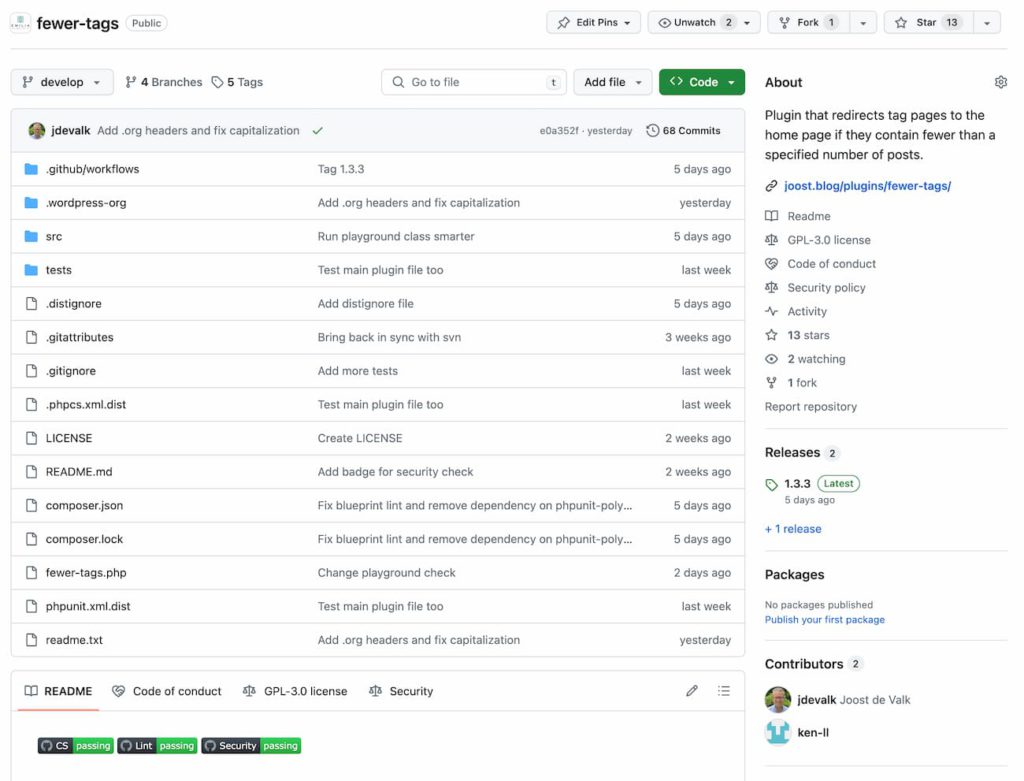If you’re new to coding, the terms Git and GitHub might sound interchangeable — but they’re not. Git is a version control system that tracks changes in your code, while what GitHub is more complicated. It is a platform that hosts your Git repositories online. In this article, we break down the key differences between Git vs GitHub, how they work together, and why both are essential in modern development.
🤔 What Is Git?
Git is a distributed version control system. It helps developers track code changes, revert updates, and collaborate without messing up the source code.
Created by Linus Torvalds in 2005 (yes, the creator of Linux), Git has become the industry standard for managing source code.
Key features of Git
- Local repositories
- Branching and merging
- Time-travel through commit history
- Works offline
Git is a tool. GitHub is a platform.
🧠 What Is GitHub?
GitHub is a web-based platform built around Git. It hosts Git repositories and adds powerful collaboration tools like:
- Pull requests
- Code reviews
- Issues and bug tracking
- Project management boards
- Team permissions

In short:
Git tracks code. GitHub helps you share it.
📊 Git vs GitHub: Quick Comparison
| Feature | Git | GitHub |
|---|---|---|
| What is it? | Version control system | Cloud-based platform for hosting Git repos |
| Installation | Installed locally | Accessed via web/app |
| Collaboration | Manual via file sharing | Pull requests, issues, comments |
| Used offline? | ✅ Yes | ❌ No (requires internet) |
| Who uses it? | Everyone managing source code | Teams, open-source devs, enterprises |
🛠️ How Git Works
Here’s a basic Git workflow:
- You initialize a repository (git init)
- Add and commit code (git add ., git commit -m “message”)
- Create branches (git branch)
- Merge changes (git merge)
- Push to GitHub (git push origin main)

🧰 How GitHub Works
GitHub acts as your remote backup and collaboration center. Developers clone repos, push code, review changes, and manage projects—all from one platform.
Features GitHub adds:
- Centralized repo hosting
- Contributor tracking
- Issue management
- GitHub Actions for CI/CD
- Team access controls
🎯 What Is GitHub Used For?
Some of the most common GitHub use cases:
- Hosting public and private projects
- Open-source collaboration
- Tracking bugs and feature requests
- Project documentation
- DevOps pipelines via GitHub Actions
🔗 GitHub Repositories Explained
A GitHub repository is like a folder for your code. Inside you’ll find:
- README.md – project intro
- /src – source files
- /docs – documentation
- .gitignore – tells Git which files to ignore
- .github – GitHub-specific config
🔐 Git vs GitHub: Version Control & Collaboration
| Purpose | Git | GitHub |
|---|---|---|
| Code tracking | ✅ | ✅ (via Git) |
| Collaboration | ❌ | ✅ |
| Cloud backups | ❌ | ✅ |
| Permissions | ❌ | ✅ |
| Web interface | ❌ | ✅ |
Git handles what happens on your machine. GitHub enables collaboration on the web.
💼 GitHub for Teams & Open Source
From open-source libraries to billion-dollar startups, GitHub is used by:
- Meta
- Microsoft
- NASA
- Apache Foundation
GitHub’s community features like forks, stars, and pull requests make it the perfect home for shared coding projects.
🚀 Why Developers Use GitHub
- It integrates with popular IDEs like VS Code
- It’s trusted for secure hosting
- You can manage issues, CI/CD, and deployments from one platform
- It connects to tools like Slack, Jira, Everhour‘s GitHub time tracking integration (for GitHub time tracking), and more
📥 How to Use GitHub with Git
- Create a GitHub account
- Create a new repo
- Copy the URL
- In your terminal:
git remote add origin <your-repo-url> git push -u origin main
You’ve now pushed your local Git project to GitHub.
🔄 GitHub and Git: Common Misconceptions
❌ Git and GitHub are the same
✅ No — Git is a tool, GitHub is a service
❌ You must use GitHub to use Git
✅ False — you can use Git without GitHub (e.g. GitLab, Bitbucket, self-hosted)
❌ GitHub is only for open source
✅ False — GitHub supports private repos, team permissions, and enterprise security
Git lets developers see the entire timeline of their changes, decisions, and progression of any project in one place. From the moment they access the history of a project, the developer has all the context they need to understand it and start contributing. [GitHub Docs]
📌 GitHub vs Git: Summary Table
| Criteria | Git | GitHub |
|---|---|---|
| Type | Tool | Platform |
| Access | Command line | Web interface |
| Hosting | Local only | Cloud hosted |
| Collaboration tools | No | Yes |
| Example use | Track code locally | Work with others online |
❓ FAQs: Git vs GitHub
What is GitHub used for?
For hosting, sharing, and collaborating on Git repositories.
What’s the difference between Git and GitHub?
Git is a version control tool. GitHub is a platform built on top of Git.
Can I use Git without GitHub?
Yes, Git is completely independent of GitHub. Learn more about Git from Git Docs.
What is the purpose of GitHub?
It simplifies team collaboration and helps manage Git repositories in the cloud.
Is GitHub free?
Yes, for public and private repositories. Paid plans offer advanced features.
🏁 Final Verdict: Git + GitHub = Better Together
If Git is the engine, GitHub is the highway.
Git gives developers total control over their code, while GitHub opens the door for collaboration, visibility, and productivity at scale.
Whether you’re a solo coder or part of a growing engineering team—understanding Git vs GitHub is essential now and beyond.
Want to boost your GitHub workflow?
👉 Track GitHub time with Everhour – the #1 time tracker for developers.
🔎 Discover what real users have to say about Everhour:
“The simplicity. It is straightforward to use and has a lot of integrations. Their support is very reactive.” [Thijs, Capterra]
“Easy to use, for clocking and to see how many hours worked.” [Faigy, Capterra]
“Easy to track and manage time as well as an opportunity to allocate time for previous dates.” [Adella, Capterra]
🚀 We cover various GitHub topics – from GitHub personal access tokens to GitHub project management, make sure to check it out!
Make sure to check out our articles comparing Codeium vs GitHub Copilot, GitHub vs Bitbucket, GitHub Copilot vs Microsoft Copilot, Jenkins vs GitHub Actions, Azure DevOps vs GitHub, and GitHub Copilot vs ChatGPT for more information!

